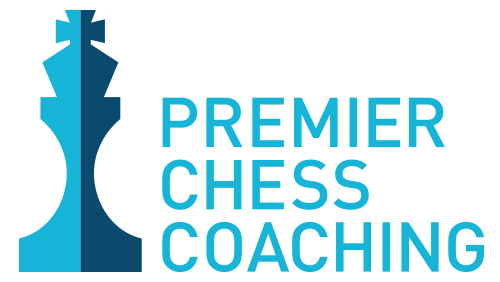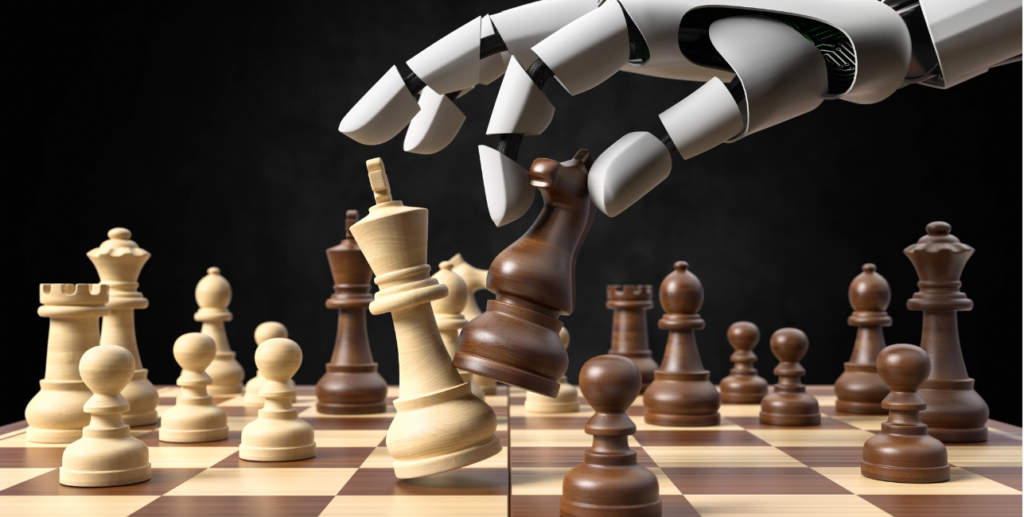Chess, a perennial symbol of strategic mastery, has always celebrated human intellectual achievement. Yet, the emergence of artificial intelligence (AI) has marked the dawn of a transformative era, revolutionizing chess with innovative strategies and insights. This exploration into the dynamic interplay between human and AI chess strategies illuminates how AI not only reflects but also significantly broadens the strategic scope of this venerable game.
The Human Touch in Chess
Chess is a monument to human ingenuity, intuition, and strategic depth. Legends like Magnus Carlsen and Garry Kasparov are celebrated not merely for their technical skills but also for their ability to craft complex strategic narratives across the board. Human players blend psychological insight, adaptable strategies, and a flair for the unforeseen, drawing on a rich heritage of chess tactics, opening theories, and endgame finesse.
The Rise of AI in Chess
The chess landscape began transforming with AI’s introduction, from Deep Blue’s historic victory over Kasparov to the present dominance of engines like AlphaZero and Stockfish. AI chess engines, distinct from humans, depend on brute-force calculations, assessing millions of positions per second and leveraging advanced algorithms to identify optimal moves. Their style is marked by flawless tactical precision, remarkable endgame foresight, and neutral position assessments.
Divergence and Convergence of Strategies
While human players shine in creative and intuitive play, AI brings unmatched precision and depth. AI adopts an empirical, data-driven approach, often unveiling strategies that challenge traditional chess dogmas. For example, AlphaZero’s preference for piece activity over material gain has reevaluated long-held beliefs, advocating for more dynamic gameplay.
Yet, strategies are also blending. Elite human players have begun to weave AI insights into their game preparation, merging human creativity with AI’s analytical depth. This fusion has birthed a new, hybrid style where humans employ AI-suggested openings and innovations, enriching their strategic arsenal.
Innovations Inspired by AI
AI has breathed new life into chess strategy, uncovering underappreciated openings, reviving dormant lines, and introducing novel tactical motifs. Beyond individual moves, AI has reshaped the strategic assessment of positions, demonstrating that perceived weaknesses can transform into strengths given the right context.
The Future of Chess Strategy
The interplay between human and AI chess strategies underscores the game’s evolving essence. As AI progresses, its influence on chess undeniably expands strategic boundaries and inspires human players to venture into uncharted territories. The future of chess resides in this compelling symbiosis, where human creativity is magnified by AI’s computational power, resulting in a richer, more intricate, and strategically profound game.
Bridging AI Innovations in Chess with Educational Excellence
The rich comparison between human and AI chess strategies not only unfolds a landscape filled with innovation, challenge, and discovery but also underscores the profound educational value chess holds for students and enthusiasts alike. AI has not just redefined the benchmarks of strategic play; it has become a pivotal tool for inspiring human players, especially young learners in school chess clubs, to push their boundaries, explore innovative strategies, and deepen their understanding of this timeless game.
For educators and coaches, incorporating these AI-inspired strategies and insights into their curriculum can significantly enhance the learning experience, fostering an environment where students learn not only from human history and achievements in chess but also from the cutting-edge advancements brought forth by AI. This dual approach prepares students not just for the next game but for future challenges, cultivating a mindset that values innovation, adaptability, and continuous learning.
If you have more questions about how AI-inspired chess strategies can enhance educational outcomes or to learn more about our programs, please contact us.


